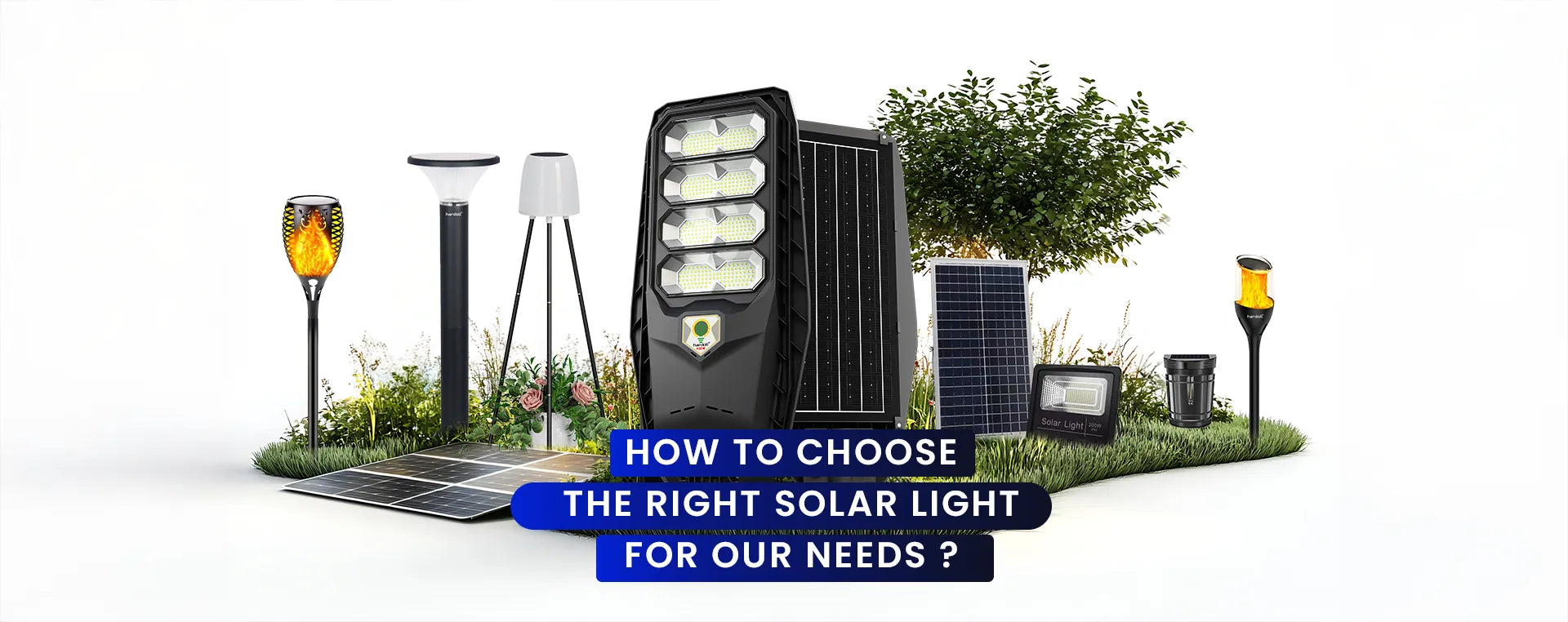As the cost of energy rises and the need for sustainable living increases, solar lights have emerged as a favorite among environmentally friendly homeowners and businesses alike. But with so many varieties of solar lights available, how do you select the right one for your particular requirements?
Whether you're illuminating a walkway, securing your premises, or just creating ambiance for your garden, this guide will take you through the key things to remember when choosing the ideal solar lighting solution.
Know the Purpose
There are numerous solar lights out there, each intended for various uses:
Solar Garden Lights – Perfect for looks and landscaping.
Solar Pathway Lights – Ideal for illuminating driveways, walkways, and garden paths.
Solar Wall Lights – Utilized for doorways, entrances, or patios.
Solar Security Lights – With motion sensors to sense movement and scare off intruders.
Solar Flood Lights – Ideal for lighting up big outdoor spaces like yards, parking lots, or playgrounds.
Solar Camping Lights – Lightweight and compact, ideal for travel, camping outdoors, or as an emergency light.
Understand the precise purpose of the light to guide your selection.
2. Determine the Availability of Sunlight
Solar lights need direct sunlight to charge. Assess the site where you want to install the light:
Full Sunlight? → Most solar lights work optimally with 6–8 hours of direct sun.
Partially Shaded? → Look for high-efficiency solar panels or lights with larger panels.
No Sunlight? → Consider solar lights with a USB charging backup, or rethink the location.
Tip: Always install your lights facing south (in the northern hemisphere) to maximize exposure.
3. Evaluate Battery Capacity and Runtime
The battery inside your solar light determines how long it will stay on after sunset.
Standard lights operate for 6–10 hours on a full charge.
If you require longer runtime (for security or night-long illumination), select models with higher battery capacity (e.g., 2200mAh+).
Lithium-ion and LiFePO4 batteries are now the most efficient and longest-lasting for solar lighting.
Pro Tip: Look for whether the light has a battery status indicator so you know when it needs to be serviced or replaced.
4. Choose the Right Brightness (Lumens)
Brightness is measured in lumens (lm) — and different applications require different levels:
5. Think of Weather Resistance
Your solar lights will be outdoors 24/7, so quality counts. Check for:
IP Ratings:
IP65: Water-resistant (perfect for rain)
IP67: Waterproof (short-term submersible)
Material Quality: Opt for aluminum alloy, stainless steel, or high-grade ABS plastic.
UV Resistance: Avoids fading or cracking over time.
Particularly if you reside in a coastal or storm-dominated region, choose sturdy, weather-proven designs.
6. Installation Type and Ease
Ask yourself:
Do I prefer a wall-mounted, pole-mounted, or ground-staked light?
Does the unit include mounting hardware as required?
Does professional installation need to be done, or is it DIY-compliant?
For residential use in general, use plug-and-play units that do not need to be wired or drilled.
7. Smart Features and Control
New solar lights now include handy features like:
Motion Sensors – Conserve energy by only turning on when there is movement.
Dusk-to-Dawn Sensors – Turn themselves on at evening and off at dawn.
Remote Control – For changing brightness or timer controls from afar.
Lighting Modes – Such as dim, bright, flashing, or warm versus cool white.
These options provide convenience and energy savings, particularly for security lighting or multi-purpose spaces.
8. Don't Just Look at Price — Consider Value
Though it's tempting to choose the lowest price, keep in mind:
How long will the light last?
Is the company known for quality products?
Are there replacement parts or customer service available?
A quality solar light may cost more upfront but will save you money and headaches over time.
9. Top Recommendations Based on Use Case
Here’s a quick guide to match your needs with the best solar light type:



